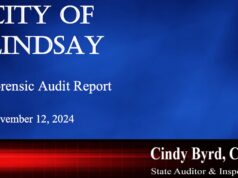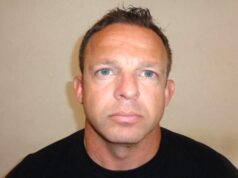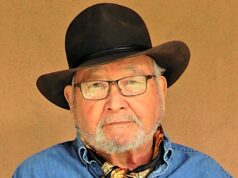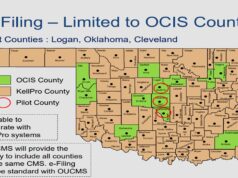(Editor’s note: This week, NonDoc will publish pieces examining the seven state questions on this November’s Oklahoma ballot. Beginning with Monday’s on SQ 776, the pieces are presented in a “filter” format that attempts to answer key questions about the measures and any campaigns being run for or against them.)
With Oklahoma leading the nation for incarcerating women and coming in No. 2 for incarceration rates overall, State Questions 780 and 781 seek to increase the efficiency of our corrections system and, ostensibly, save taxpayers money.
SQ 780, aka the Oklahoma Smart Justice Reform Act, would save the state money by reclassifying certain low-level drug possession and theft charges from felonies to misdemeanors. In turn, SQ 781 would create a fund (the County Community Safety Investment Fund) comprised of monies saved by avoiding the need for the state to prosecute and incarcerate the aforementioned low-level offenders. The Office for Management and Enterprise Services would be responsible for calculating the actual savings or providing an estimate of savings to be added to the fund. Last, the fund would be distributed to counties “in proportion to their population to provide community rehabilitative programs, such as mental health and substance abuse services.”
As one might expect, the passage and implementation of SQ 781 hinges on the passage of SQ 780. These items appear on the ballot thanks to an initiative petition led by former Speaker of the House Kris Steele, who currently serves as executive director of The Education and Employment Ministry (TEEM) and chairman of Oklahomans for Criminal Justice Reform.
Arguments for SQ 780, 781
William C. Kellough, former district judge for the 14th Judicial District in Tulsa County, emphasized the economic benefit of passing criminal-justice reform in an editorial to the Tulsa World:
The return on investment through these programs is huge — not only from a moral standpoint, but a fiscal standpoint as well. It costs roughly $15,000 per year to incarcerate an individual in Oklahoma, compared to about $6,000 for treatment and community supervision.
Likewise, Oklahoma City University president Robert Henry echoed the fiscal nature of these potential measures to the TW:
Instead of spending money on an inefficient system of imprisoning people for low-level offenses, we can invest in programs designed to address the root causes of crime and help Oklahomans lead productive lives. Being fiscally conservative is spending money wisely.
Henry is also a former member of the Oklahoma House of Representatives, former attorney general of Oklahoma, and former chief judge of the U.S. Court of Appeals for the Tenth Circuit.
Last, Steele offered up a bit of snark in promoting his cause during a recent meeting sponsored by the Cleveland County Democratic Party:
The actual criminal justice system creates a great degeneration cycle, it is not sustainable, both generationally and financially. If it continues, the Department of Corrections will have to change its name because it is not correcting anything.
Arguments against SQ 780, 781
Acting as the Cleveland County foil to Steele, district attorney Greg Mashburn opposes the measures. During a public forum in Norman, he cited the possibility that relaxed penalties will embolden criminal offenders:
The law will not be any more efficient and it will encourage people to possess and deal drugs. Drug dealers will cut their drugs in a small amount to distribute it, so if they are caught they will say it is for personal consumption.
In a Q&A with The Norman Transcript, Mashburn clarifies that he’s not opposed to criminal-justice reform per se, but he believes these measures do too much too soon:
If SQ 780 passes, your 10th time to carry around a bunch of heroin or meth, you can carry it into a school and it’s a misdemeanor. It will kill drug court. Without the incentive of prison, fewer defendants with drug charges will enter drug court. We just passed the most extensive criminal reform package in many years. … I don’t oppose reform, but [SQ 780] is not the answer.
With regard to the “criminal reform package” Mashburn mentions as having recently passed, the DA is referring to bills like HB 2753, HB 2934, HB 2479 and HB 2751. Each of these bills was signed into law in late April and will go into effect Nov. 1. The measures will increase options for drug offenders to enter drug court, allow greater flexibility in charging offenses as misdemeanors instead of felonies, reduce drug-related minimum sentences and raise the minimum monetary amount for certain financial crimes to be considered felonies.
Last, Tulsa World editorial editor Wayne Greene lays out his opposition in a column from late September:
[Tulsa County District Attorney Steve] Kunzweiler points out that having the power to file felony charges against a salvageable low-level criminal is important leverage in getting that person to accept treatment. Take out the leverage, and you might just send the offender back to the streets with the same underlying problems, setting the stage for another arrest and an eventual trip to prison.
Oklahoma Watch hosts forum tonight
For those interested in learning more about the ins and outs of SQ 780 and 781, OklahomaWatch.org will host a forum tonight at Kamps 1910 Cafe in OKC regarding the two measures. Steele and Mashburn will both be in attendance. The event is free, but those wishing to attend are encouraged to register online in advance.






















